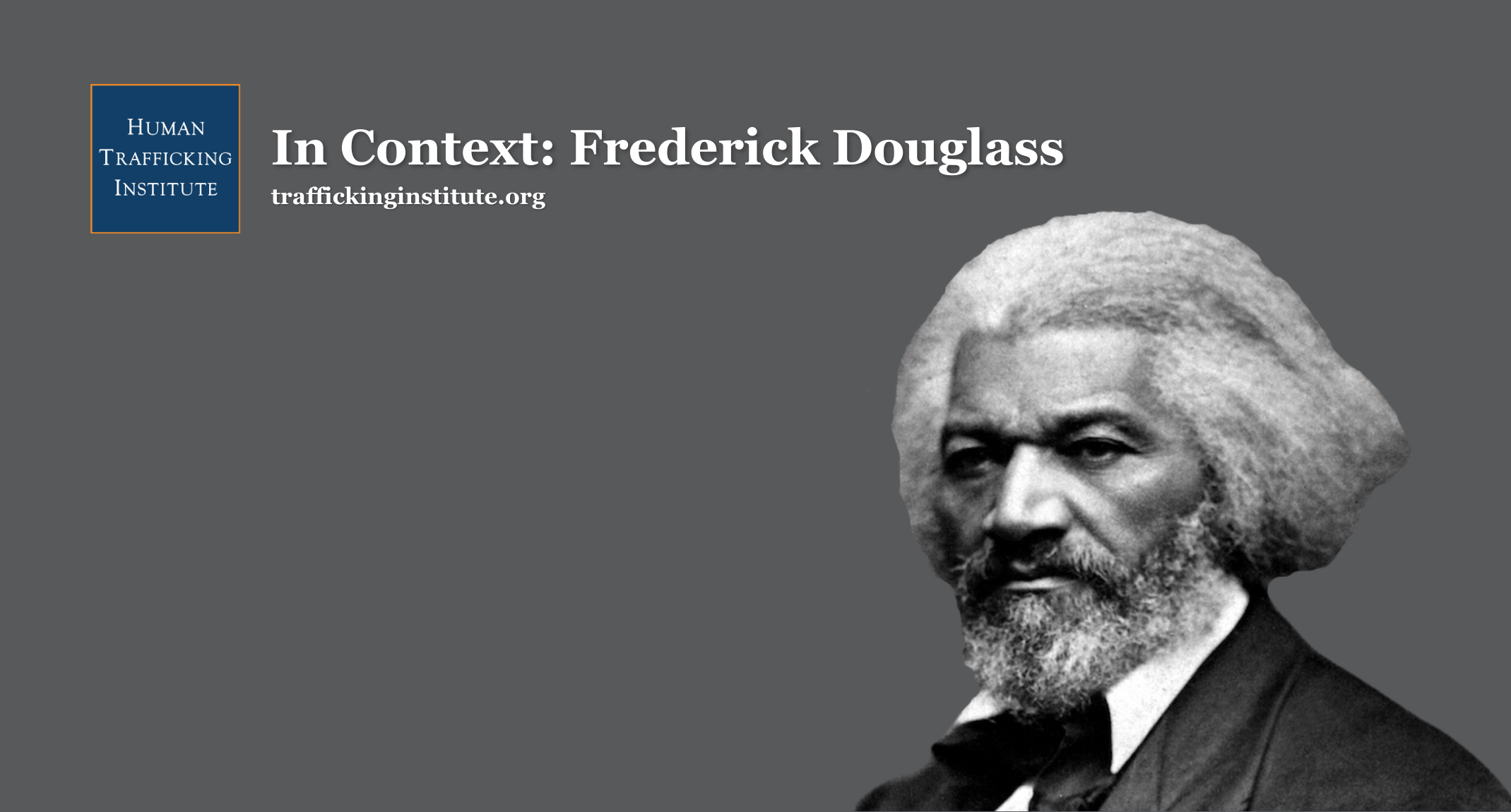“Power concedes nothing without a demand; it never did and it never will.” – Frederick Douglass
Letter to Gerrit Smith, 30 March 1849
Frederick Douglass is one of the greatest names in the Abolitionist movement. Born to an enslaved mother and possibly white father, Douglass was born into slavery in 1818. He was born Frederick Augustus Washington Bailey, but changed his name to Frederick Douglass when he made his escape from slavery.
Frederick Douglass was enslaved for the first twenty years of his life. He experienced and witnessed firsthand the unspeakable horrors of slavery. He recounted his harrowing stories of being a slave in Maryland, and his autobiography Narrative of the Life of Frederick Douglass, an American Slave shocked the nation and pushed both whites and blacks to join the anti-slavery movement. Douglass traveled domestically and internationally telling everyone who would listen about his time enslaved and about the institution of slavery.
In one of many letters to fellow abolitionists, Frederick Douglass wrote to his close friend Gerrit Smith. Gerrit Smith and Frederick Douglass shared a common friend, John Brown. All three men were champions in the Abolitionist movement, but they had different strategies for achieving freedom for slaves. In 1859, in an attempt to initiate a slave revolt, John Brown led the raid on Harper’s Ferry to seize a federal armory. The raid on Harper’s Ferry was funded in part by financial donations from Gerrit Smith. While Frederick Douglass supported his friend John Brown and his efforts to free slaves, he did not participate in the recruitment of participants or in the raid itself. No matter their differences in strategies, all three men had the same goal, to end slavery.
In 1851, Frederick Douglass and Gerrit Smith partnered together to denounce the Fugitive Slave Law which required that slaves be returned to their owners, even if they had escaped to a free state. As an escaped slave himself, the Anti Fugitive Slave Law would have required that, if captured, Frederick Douglass himself would have to be returned to his owner, no matter the time that had passed since his escape.
Just three years prior to their partnership in combating the Anti Fugitive Slave Law, Frederick Douglass sent Gerrit Smith a letter. The letter was dated March 30, 1849. In the letter, Frederick Douglass penned the following words:
“Power concedes nothing without a demand; it never did and it never will.”
Frederick Douglass and Gerrit Smith demanded an end to slavery and demanded an end to the power that slaveholders had over their slaves. Both Douglass and Smith uttered their demand to end the institution of slavery to anyone who would listen. Whether by speech or by letter, Douglass and Smith were zealous advocates for the abolition of slavery and the abolition of the unfair power that white owners had over their slaves.
The Human Trafficking Institute (HTI) recognizes the power that traffickers hold over their victims even after the victim is able to leave the trafficking situation. Just like Douglass and Smith, HTI is a zealous advocate for survivors of trafficking and wants to share their stories with anyone who will listen. A demand from one person can be powerful, but a demand from people from across the globe can be influential. Influential enough to create change.




